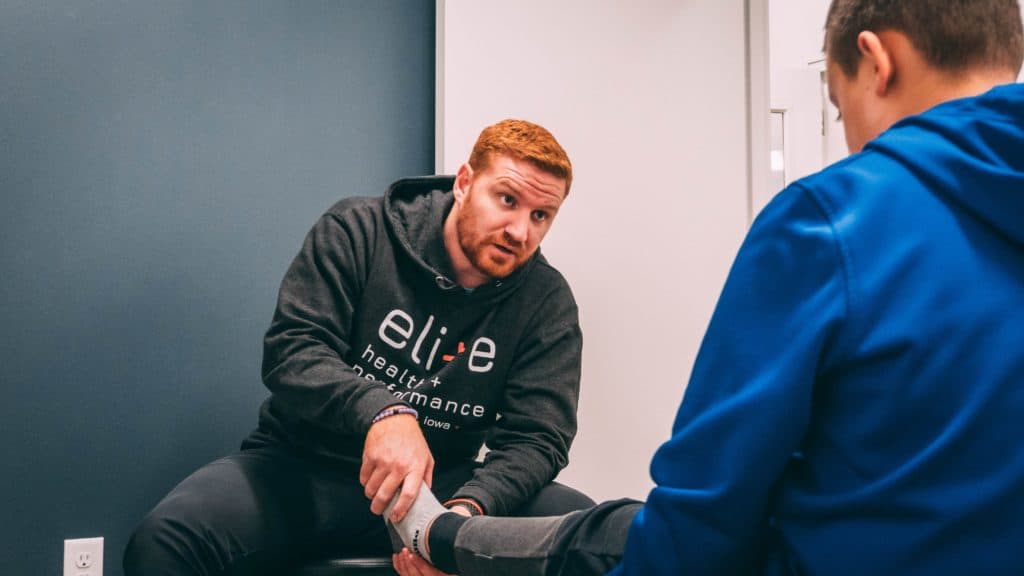Questions Personal Trainers Should Ask Clients
The business of training has many different aspects to it. An aspect of training that gets overlooked often when detailing the ins and outs of it, is the relationship that has to be formed between trainer and client.
Trainers have a special place in a client’s life because they are essentially helping them make life-changing decisions for their bodies. If anyone is helping you make changes that are significant, a certain level of relationship is required. There is information about the client that the trainer has to know in order to fulfill his or her assignment. Thus, there are vital questions that need to be asked and answered in order to progress and protect the client in the long run. The goal is to enhance the client’s results and keep them on an efficient regimen.

Enhancing the Training Relationship
A promising relationship between trainer and client starts once the first contact is made from the client expressing the need for the trainer’s expertise. Once that occurs it is then on the trainer to figure out if the client will even be fit enough to participate in the training program that you have put together. If they are not fit then it becomes a necessity to arrange the program in a way that fits the client. The consequences of not getting this preliminary communication can be severely detrimental to progression.
The following is a list of questions and the help they provide to not only the client but the trainer for asking them.
Benefit of Using Persona
Just before we discover the pertinent questions that trainers need to ask their clients. It is important to notify you of the benefits of using an app like Persona. This app exists to ease the lives of those that work in the industry of serving others.
Some of the features that come with this app are the ability to schedule your clients, collecting payments, handle business logistics, etc. Also to be noted is our ability to file taxes for personal trainers. We’ll help you maximize your tax returns and minimize the amount of work you have to do when doing your taxes. These key features allow for you to really focus on the aspects of your business that you prefer to deal with like building relationships with your clients.
Persona is partnered by major companies such as Goldman Sachs and Stripe Payments so you can safely rely on its credibility. The app is free to download and it is completely free to use all the features within it, so expect zero hidden fees. It is not often there is an app with nothing to gain besides your satisfaction, take advantage of using Persona for all it has to offer.

Fitness Goals
The first question you should be asking as a trainer is, “What is/is your fitness goal(s)?” because it needs to be established what you are both trying to accomplish. This gives insight into what results in the clients are looking to see from training.
Another reason is you must be able to assess whether the goals the client has are realistic. If they happen to not be realistic it is now the trainer’s job to give a gentle reality check to the client. Educate them so that they cannot be disappointed and in turn, it will not look negative on your business that you did not deliver certain results.
Following asking about their fitness goals overall, it is a good idea to ask if they have previously attempted to achieve these goals. This will give a trainer an idea of what the client has tried to do that has not worked for them. For example, if they tried many diets but did not lose the weight they wanted or worked out in the gym but were unsure how to go about it. Their past experiences will allow a trainer to create a program for the client that will suit what worked over what didn’t work for them.
Exercise Experience
A trainer should ask a client to divulge what they do to stay active regularly. There are a variety of different ways one can “stay active” such as golf, walking, or calithestetics, and the trainer must be able to accurately assess the level of activity and how helpful it is to the client’s overall goal. This question is so important because it gives an idea of if the client is a beginner or familiar with working out. Also, you do not want to overwork or underwork the client.
Clients that have some experience exercising may have certain exercises that they particularly enjoy. Trainers should focus on utilizing those workouts or activities to help incorporate fun into their fitness journey. Motivating clients as a personal trainer plays a significant role in your trainees reaching their fitness goals. A great way to motivate a client is to create a fun experience while they’re achieving their gains.
Trainers also need to ask how the client feels about strength training. Strength training is a part of any balanced workout routine however, it can be a touchy topic at times because of people’s preconceived feelings about it. For example, there are women that do not like strength training because they do not want to become bulky-looking. This is why you ask the question so that as a trainer you can clear up the false information that lifting weights automatically makes you become bulky. Provide the client with information that proves that they can weightlift and maintain a build that is pleasing to them.
Eating Habits
An integral question that must be answered is what is the client’s food intake like. The food that person eats is very impactful to the results that they wish to achieve. A client could be doing all the activities in the gym and outside of it but if what they put inside their bodies is not healthy, beneficial, or properly portioned it will not matter.

Nutrition is so important to training that it may be even more important than actually working out. A common saying in the training industry is “You can’t outwork a bad diet.” The saying has reigned true since its inception and till this day should be hammered into the minds of clients especially if they are resistant to changes in their meals. Also to be noted is clients should be directed to a proper nutritionist or dietician if you, as a trainer, are not qualified in that area. You want to reinforce the benefits of how changing diets can give energy boosts and improve overall bodily functioning.
Medical Conditions
If a client has any underlying conditions it is definitely imperative that the trainer has that information. Of the many questions that are asked in the first consultation, finding out what medical conditions they have lies atop as the most critical to ask.
There are certain medical conditions that will not allow a person to be trained by the average trainer as it would be very detrimental to their health. You must be honest with the client and let them know whether you are properly qualified to help them. For example, there are trainers certified to work with individuals who have medical conditions such as diabetes, heart disease, or are obese.
Beyond those specific conditions previously named, some clients may have conditions such as asthma or joint pains that are generally considered less serious but still impact training. As a trainer, you want to know how far you can push and intensify their workouts so you have to receive information about their medical history to be able to make those adjustments.
It should also be noted that a client should be asked to inform their potential trainer if they are a smoker and if so, how much they smoke. Though it is not a “medical condition” it is an important detail of their lifestyle. As a trainer, you should present the facts of how much smoking can hinder their fitness journey but do not be surprised if there is heavy resistance to them quitting overall.
Client’s Employment
One may see asking for a client’s place of employment as prying a bit too deep into their personal lives. However, it is actually knowledge that is useful for the trainer to know. If a client works a job that is fast-paced, includes lifting and standing, then a trainer must build a workout routine around that. On the other hand, if a client works a job with a lot of sitting in place such as a secretary, then a trainer must adjust. Especially if that specific client wished to lose weight, the trainer has to accommodate for the lack of calories being burned during the client’s 8-10 hour workday.

Free Time
Trainers should be asking how much time does the client has or is willing to dedicate to their fitness journey. For fairness’ sake, you need to know how to manage your time as a personal trainer. This is especially important when you’re facing your client and letting them know how many hours per week both of you need to be putting into achieving their goals. A client can only expect so much to be achieved if they can only give an insignificant amount of time towards working out.